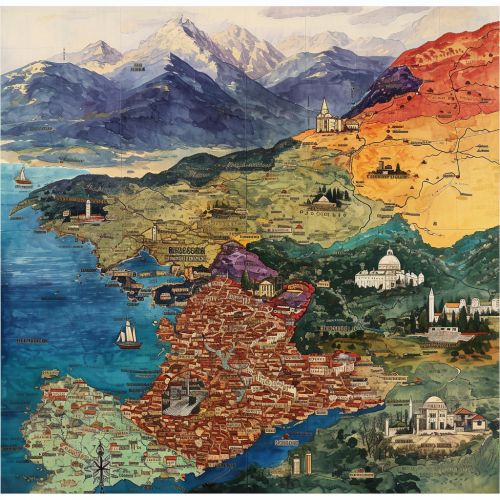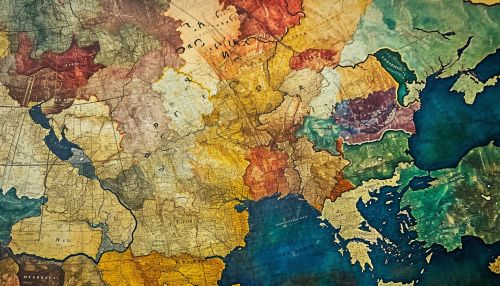Balkan sprachbund
Introduction
The Balkan linguistic union or Balkan sprachbund represents a group of languages that have been influenced by one another through geographical proximity and historical interaction. The languages involved in this linguistic phenomenon belong to different families, including Indo-European, Turkic, and Uralic. Despite their diverse origins, these languages have developed shared features that distinguish them from other languages in their respective families.


Historical Background
The Balkan sprachbund emerged as a result of complex historical and social processes in the Balkans. The region has been a crossroads of different civilizations, including the Roman, Byzantine, and Ottoman empires, which have left their mark on the languages spoken in the area.
Characteristics
The shared features of the Balkan sprachbund are not limited to vocabulary borrowings but extend to phonology, morphology, syntax, and semantics. These include:
- The postpositional definite article: Unlike most Indo-European languages, which use prepositions, the languages of the Balkan sprachbund use postpositions.
- The loss of the infinitive: Most Balkan languages have replaced the infinitive with subjunctive constructions.
- The use of the dative to express possession: This is a feature that distinguishes the languages of the Balkan sprachbund from other Indo-European languages.
- The use of reduplication to express intensity or repetition: This is a common feature in the Balkan languages, although it is not unique to them.
Languages Involved
The core languages of the Balkan sprachbund are Albanian, Greek, Romanian, Bulgarian, and Macedonian. Other languages that have been influenced by the sprachbund to varying degrees include Serbo-Croatian, Turkish, Romani, and Aromanian.
Controversies and Debates
The concept of the Balkan sprachbund has been the subject of ongoing debates among linguists. Some argue that the shared features of the Balkan languages are the result of convergence due to contact, while others believe they are the remnants of a common Proto-Indo-European substrate. The boundaries of the sprachbund are also a matter of contention, with different scholars including or excluding certain languages based on their criteria.
Conclusion
The Balkan sprachbund is a fascinating example of linguistic convergence and divergence. Despite the controversies surrounding its definition and boundaries, it remains a key concept in the study of the languages of the Balkan region and their historical development.
